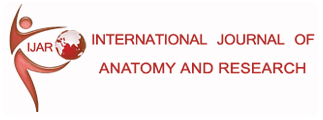IJAR.2019.264
Type of Article: Original Research
Volume 7; Issue 3.3 (September 2019)
Page No.: 6939-6943
DOI: https://dx.doi.org/10.16965/ijar.2019.264
STUDENTS PERCEPTION ON INTERNAL ASSESSMENT IN ANATOMY
Swapnali Shamkuwar *1, Varsha Mokhasi 2.
*1 Assistant Professor, Department of Anatomy, Vydehi Institute of Medical Sciences & Research Centre, Bangalore, Karnataka, India.
2 Professor & HOD, Vydehi Institute of Medical Sciences & Research Centre, Bangalore, Karnataka, India.
Correspondence Address: Dr. Swapnali Shamkuwar, A-902, Skylark Esta Apartment, Hoodi Graphite Main Road, Near Kamat Yatriniwas, Hoodi, Bangalore. 560048, Karnataka, India.
Mobile no. – 8095342774 E-Mail: drswapnalis@gmail.com
ABSTRACT:
Background: Assessment is one of the most important aspect of teaching and learning process. Various assessment methods are available to assess the knowledge & skills of students. The objective of the study was to know views of the students regarding the best assessment method in anatomy.
Materials and methods: Inputs from 200 MBBS students were collected who completed first year MBBS. A questionnaire which included questions relating to various assessment techniques for theory & practical internal exams in anatomy was used to get the feedback from the students.
Results: Majority students felt that internal assessment should be conducted thrice in a year. The assessment methods preferred by them was written test for theory in the form of SAQ & SEQ and MCQ also should be included in it. Many students felt that internal assessment should be the criteria for allowing students to appear in university examinations but disagreed to include the internal assessment marks in university examination.
Conclusion: It is important to obtain more frequent feedback from the students which will help teachers to modify the assessment methods and improve the standards of medical education.
KEY WORDS: Internal Assessment, Student, Method, Feedback, Anatomy.
REFERENCES
- Aalaei S, Azizi M Ahmadi T, Aalaei A. Comparison of Multiple-Choice and Essay Questions in The Evaluation of Dental Students. International Journal of Advanced Biotechnology and Research 2016; 7(5): 1674-1680.
- Panchbhai A, Vagha S, Bhowate R. Perception of students and faculties regarding the formative assessment examinations in dental college in India. Journal of Education and Ethics in Dentistry 2014;4(2); 47-53.
- Cilliers F J, Schuwirth L W, Adendorff H J, Herman N, Vleuten C P.The mechanism of impact of summative assessment on medical students’ learning. Adv in Health Sci Educ 2010; 15:695–715.
- Raupach T, Brown J, Anders S, Hasenfuss G, Harendza S. Summative assessments are more powerful drivers of student learning than resource intensive teaching formats. BMC Medicine 2013;11;61.
- Hift RJ. Should essays and other open ended type questions retain a place in written summative assessment in clinical medicine? BMC Medical Education 2014; 14: 249.
- Tabish S A. 2009. Assessment Methods in Medical Education. International journal of health sciences 2008; 2(2); 3-7.
- Wallerstedt S, Erickson G, Wallerstedt SM. Short answer questions or Modified essay Questions– More than a technical issue. International Journal of Clinical Medicine 2012. 3:28-30.
- Reiner CM, Bothell TW, Sudweeks RR, Wood B. How to prepare effective essay questions: guidelines for University Faculty. BYU Faculty center, Brigham Young University Testing Services, Department of Instructional Psychology and Technology 2002;5.
- Sharma HS, Mutalik MM. Questions and Structured essay questions at III MBBS examination in Otorhinolaryngology in a Medical college in Mauritius. Int J Pharm Bio Sci 2014;5(4):1195-202.
- Khan M, Aljarallah BM. Evaluation of Modified Essay questions (MEQ) and Multiple Choice Questions (MCQ) as a tool for assessing the Cognitive skills of Undergraduate Medical Students. Int J Health Sci (Qassim) 2011;5(1):45-51.
- Rafique S, Rafique H. Student’s feedback on teaching and assessment at Nishtar Medical College, Multan. J Pak Med Assoc 2013;63(9):1205-09
- Bekkink M O, Donders R, Van Muijen G N P, Ruiter D J.Challenging medical students with an interim assessment: a positive effect on formal examination score in a randomized controlled study. Adv in Health Sci Education (2012) 17:27–37.
- Nagar S K, Malukar O, Kubavat D, Prajapati V, Ganatra D, Rathwa A. Students perception on anatomy teaching methodologies. National journal of medical research. 2012;2(1):111-112.
- Jaiswal R, Sathe S, Gajbhiye V, Sathe R. Students Perception on Methods of Anatomy Teaching and Assessment, International Journal of Anatomy and Research 2015; 3(2):1103-08.
- Chakrabarti S, Raghunath G, Vijayalakshmi. Challenges in learning Anatomy by first MBBS students of 2016-17 batch its difficulties and assessment methods preferred by them – a feedback study. Indian Journal of Clinical Anatomy and Physiology 2018; 5(3): 416-421.
- Naik T B, Upadhya A K, Swarooprani N B, Wadekar MD, Mane V, BiradarA. Students perception on different formats of written assessment in medical education. Journal of Educational Research & medical Teacher 2015; 3(1): 8-12.








